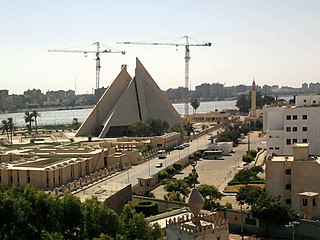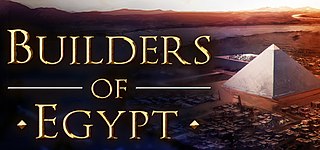
Ancient Egypt was a civilization of ancient Northeast Africa. It was concentrated along the lower reaches of the Nile River, situated in the place that is now the country Egypt. Ancient Egyptian civilization followed prehistoric Egypt and coalesced around 3100 BC with the political unification of Upper and Lower Egypt under Menes. The history of ancient Egypt unfolded as a series of stable kingdoms interspersed by periods of relative instability known as “Intermediate Periods.” The various kingdoms fall into one of three categories: the Old Kingdom of the Early Bronze Age, the Middle Kingdom of the Middle Bronze Age, or the New Kingdom of the Late Bronze Age.

Pharaoh is the vernacular term often used for the monarchs of ancient Egypt, who ruled from the First Dynasty until the annexation of Egypt by the Roman Republic in 30 BCE. However, regardless of gender, "king" was the term used most frequently by the ancient Egyptians for their monarchs through the middle of the Eighteenth Dynasty during the New Kingdom. The earliest confirmed instances of "pharaoh" used contemporaneously for a ruler were a letter to Akhenaten or an inscription possibly referring to Thutmose III.

Thebes, known to the ancient Egyptians as Waset, was an ancient Egyptian city located along the Nile about 800 kilometers (500 mi) south of the Mediterranean. Its ruins lie within the modern Egyptian city of Luxor. Thebes was the main city of the fourth Upper Egyptian nome and was the capital of Egypt for long periods during the Middle Kingdom and New Kingdom eras. It was close to Nubia and the Eastern Desert, with its valuable mineral resources and trade routes. It was a religious center and the most venerated city during many periods of ancient Egyptian history. The site of Thebes includes areas on both the eastern bank of the Nile, where the temples of Karnak and Luxor stand and where the city was situated; and the western bank, where a necropolis of large private and royal cemeteries and funerary complexes can be found. In 1979, the ruins of ancient Thebes were classified by UNESCO as a World Heritage Site.

Amarna is an extensive ancient Egyptian archaeological site containing the remains of what was the capital city during the late Eighteenth Dynasty. The city of Akhetaten was established in 1346 BC, built at the direction of the Pharaoh Akhenaten, and abandoned shortly after his death in 1332 BC. The name that the ancient Egyptians used for the city is transliterated as Akhetaten or Akhetaton, meaning "the horizon of the Aten".

Amenhotep III, also known as Amenhotep the Magnificent or Amenhotep the Great and Hellenized as Amenophis III, was the ninth pharaoh of the Eighteenth Dynasty. According to different authors, he ruled Egypt from June 1386 to 1349 BC, or from June 1388 BC to December 1351 BC/1350 BC, after his father Thutmose IV died. Amenhotep was Thutmose's son by a minor wife, Mutemwiya.

Sid Meier's Civilization III is the third installment of the Sid Meier's Civilization turn-based strategy video game series. It was released in 2001, and followed by Civilization IV. Unlike the original game, Civilization III was not designed by Sid Meier, but by Jeff Briggs, a game designer, and Soren Johnson, a game programmer.
Impressions Games was a British video game developer founded by David Lester. He sold the company to Sierra On-Line in 1995, who was then bought out by Cendant and eventually, Vivendi Universal.

Tilted Mill Entertainment is a video game developer located in Winchester, Massachusetts. It was founded in 2002 by former Impressions Games lead designer and general manager Chris Beatrice, business manager Peter Haffenreffer, and designer Jeff Fiske. The studio is known for its city-building games.
City Building is a series of historical city-building games developed by Impressions Games, BreakAway Games, Tilted Mill Entertainment, and published by Sierra Entertainment. The series began in 1992 with Caesar, set in the Roman Empire, and consists of twelve games to date, including expansion packs.

Kerma was the capital city of the Kerma culture, which was located in present-day Sudan at least 5,500 years ago. Kerma is one of the largest archaeological sites in ancient Nubia. It has produced decades of extensive excavations and research, including thousands of graves and tombs and the residential quarters of the main city surrounding the Western/Lower Deffufa.

Pharaoh is an isometric city-building game released in November 1999. It was created by Impressions Games and published by Sierra Studios for Microsoft Windows. Using the same game engine and principles of Caesar III, it is the first such game in Sierra's City Building series to focus on another civilization of ancient times. Players oversee the construction and management of cities and settlements in Ancient Egypt, micro-managing every aspect of the city to ensure citizens are fed, employed, healthy and protected from diseases, disasters and wars. An expansion pack, Cleopatra: Queen of the Nile, was released in 2000, developed by BreakAway Games. In 2001, both the game and expansion pack were bundled together as Pharaoh Gold. A remake titled Pharaoh: A New Era was released by Triskell Interactive and Dotemu in 2023.
Chris Beatrice is a video game designer and artist noted for primary creative development of popular historical strategy games, including Lords of the Realm series and the City Building series.

Spanning over three thousand years, ancient Egypt was not one stable civilization but in constant change and upheaval, commonly split into periods by historians. Likewise, ancient Egyptian architecture is not one style, but a set of styles differing over time but with some commonalities.

Titan is a game engine developed by Stainless Steel Studios used in the real-time strategy genre. It was mainly used as a PC game engine in the early 2000s. The engine was used in Stainless Steel Studio's early games, such as Empire Earth and Empires: Dawn of the Modern World.

Minya is the capital of the Minya Governorate in Upper Egypt. It is located approximately 245 km (152 mi) south of Cairo on the western bank of the Nile River, which flows north through the city.

Silkroad Online is a fantasy MMORPG set in the 7th century AD, along the Silk Road between China and Europe. The game requires no periodic subscription fee, but players can purchase premium items to customize or accelerate gameplay.
Keith Zizza is a video game soundtrack composer. He has worked as a composer and audio director for companies such as Electronic Arts, Impressions Games, Sierra Entertainment and Tilted Mill Entertainment. His discography includes more than 25 AAA game titles. In April 2008 Zizza released his debut solo album, Memories of a Forgotten Age.

River God is a novel by author Wilbur Smith. It tells the story of the talented eunuch slave named Taita, his life in Egypt, the flight of Taita along with the Egyptian populace from the Hyksos invasion, and their eventual return. The novel can be grouped together with Wilbur Smith's other books on Ancient Egypt. It was first published in 1993, and was adapted for television alongside The Seventh Scroll as the 1999 mini-series The Seventh Scroll.

The gardens of ancient Egypt probably began as simple fruit orchards and vegetable gardens, irrigated with water from the Nile. Gradually as the country became richer, they evolved into pleasure gardens with flowers, ponds and valleys of fruit and shade trees. Temples, palaces, and private residences had their own gardens, and models of gardens were sometimes placed in tombs so their owners could enjoy them in their afterlife.

Builders of Egypt is an upcoming economic type of city-building game taking place in Ancient Egypt. The story will start in a little-known protodynastic period. The player will be able to observe the birth of Egyptian Civilization and the game will finish with the fall of the Ptolemaic Kingdom and Cleopatra's death.

















